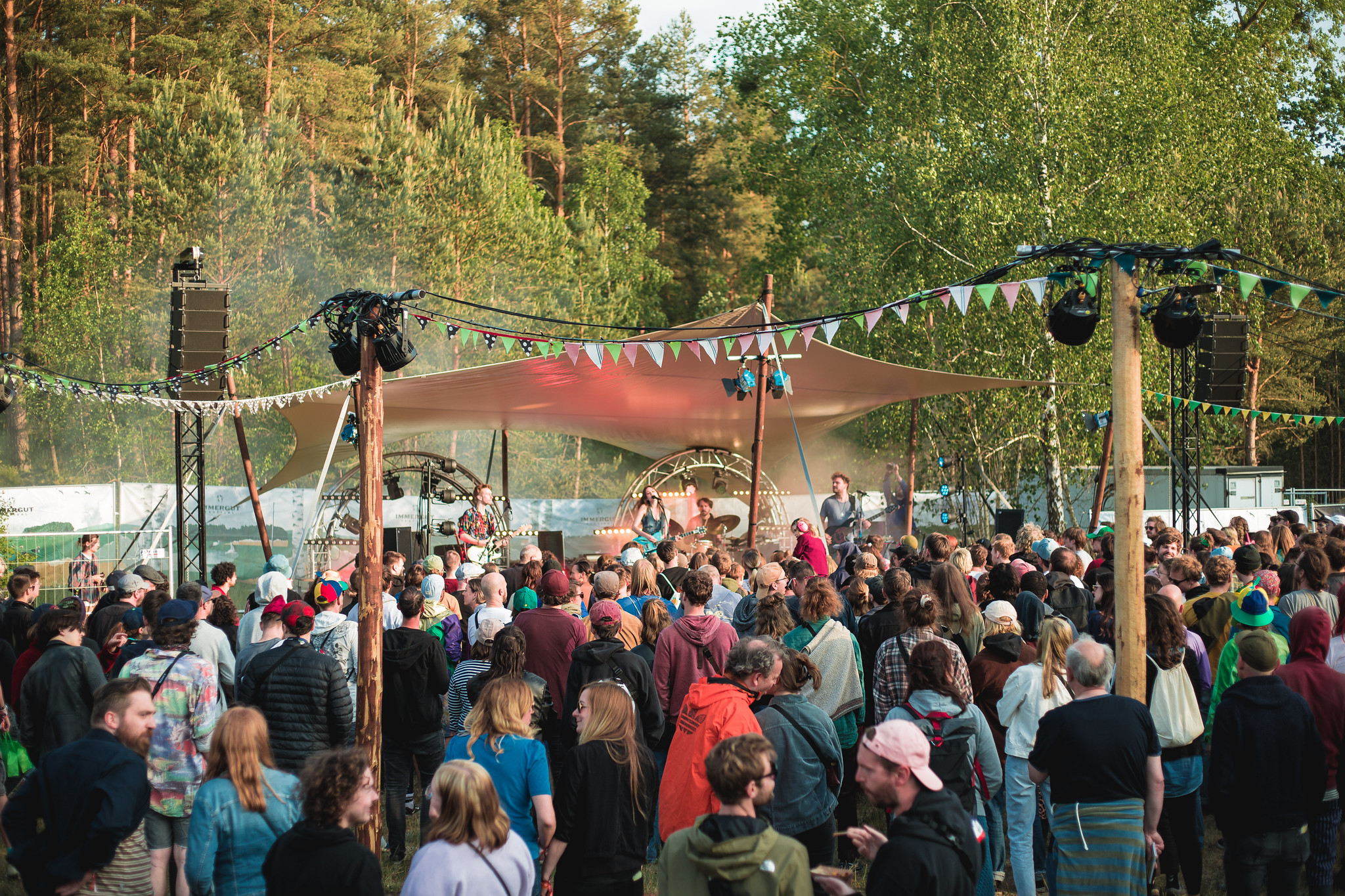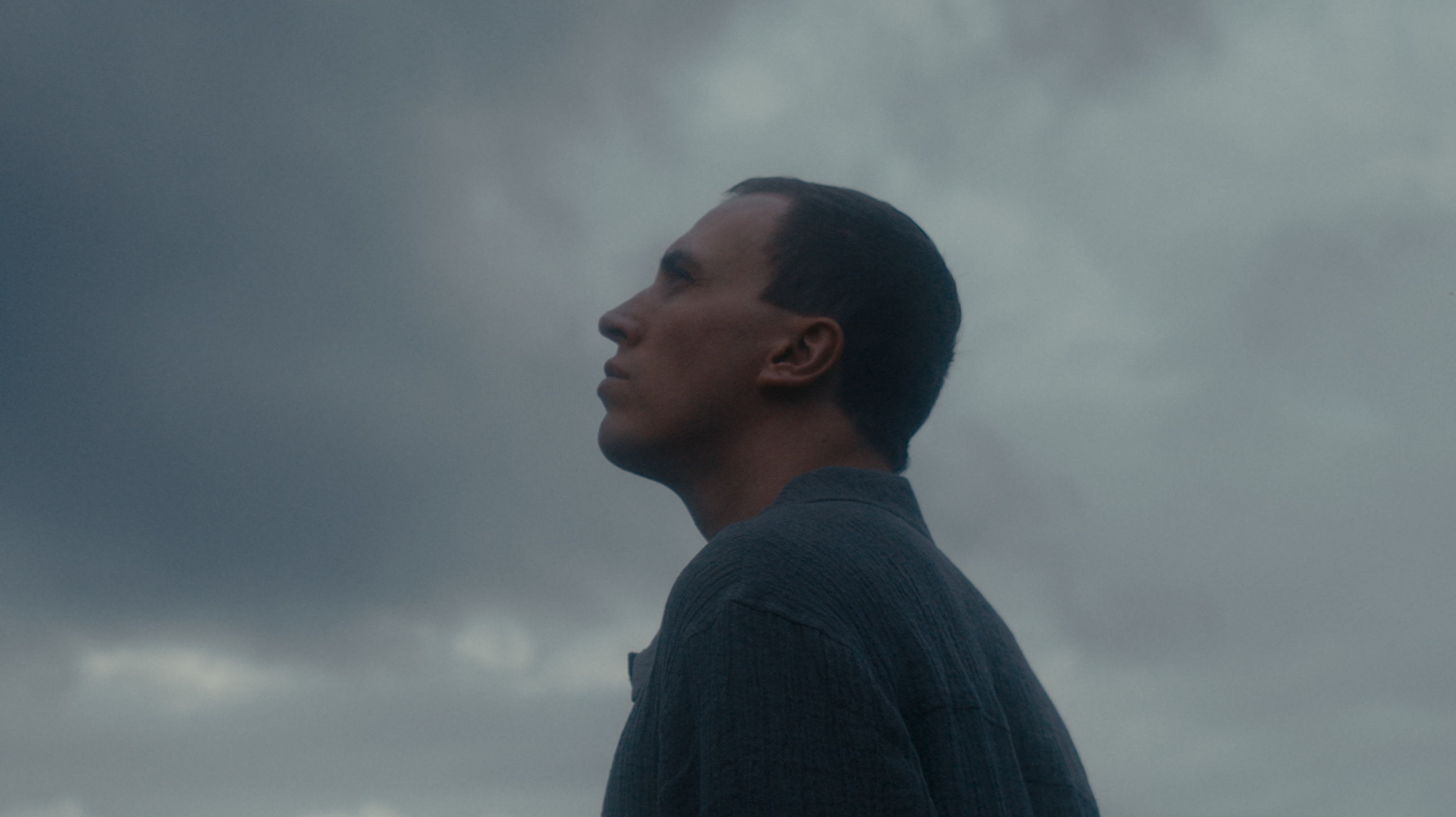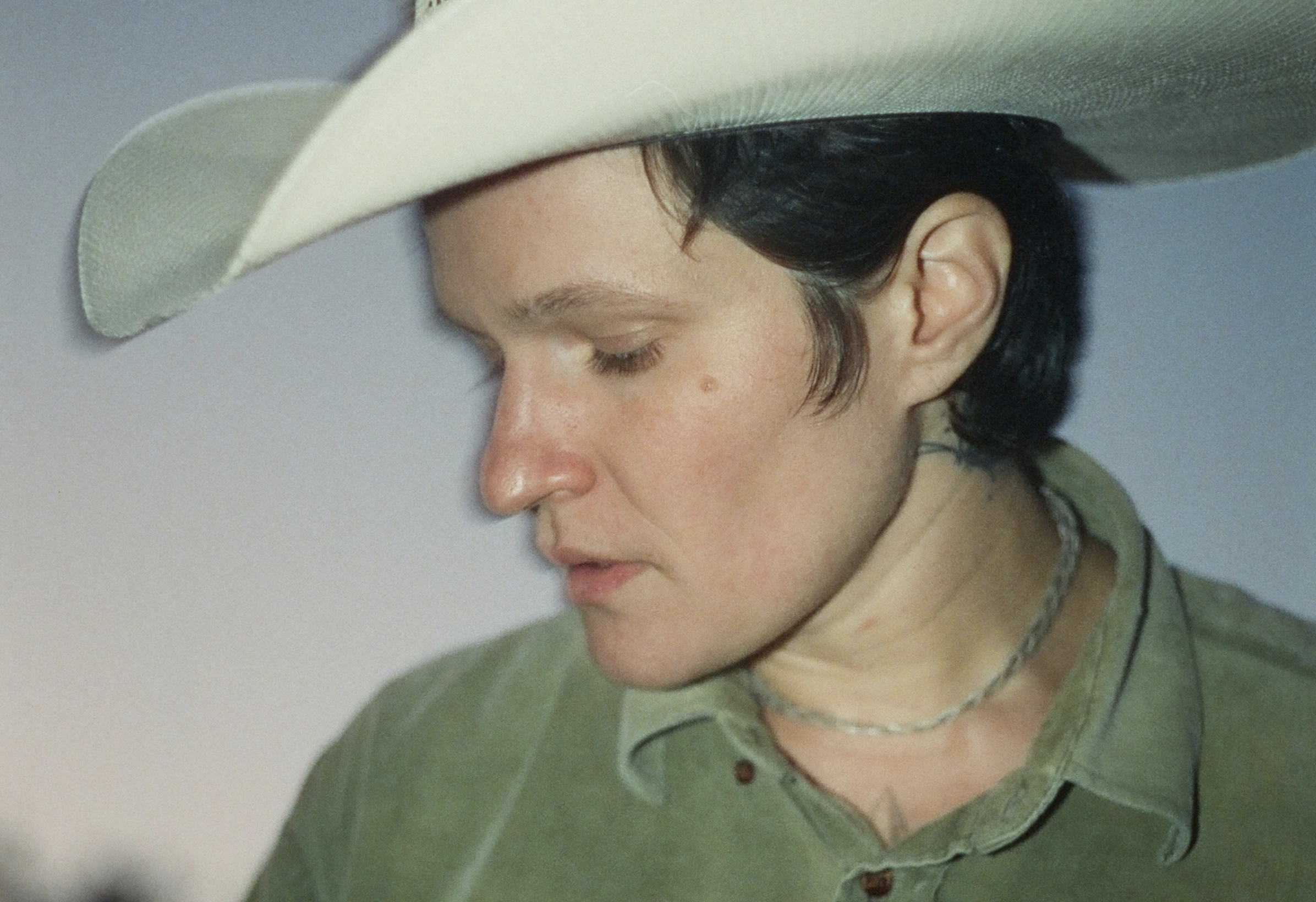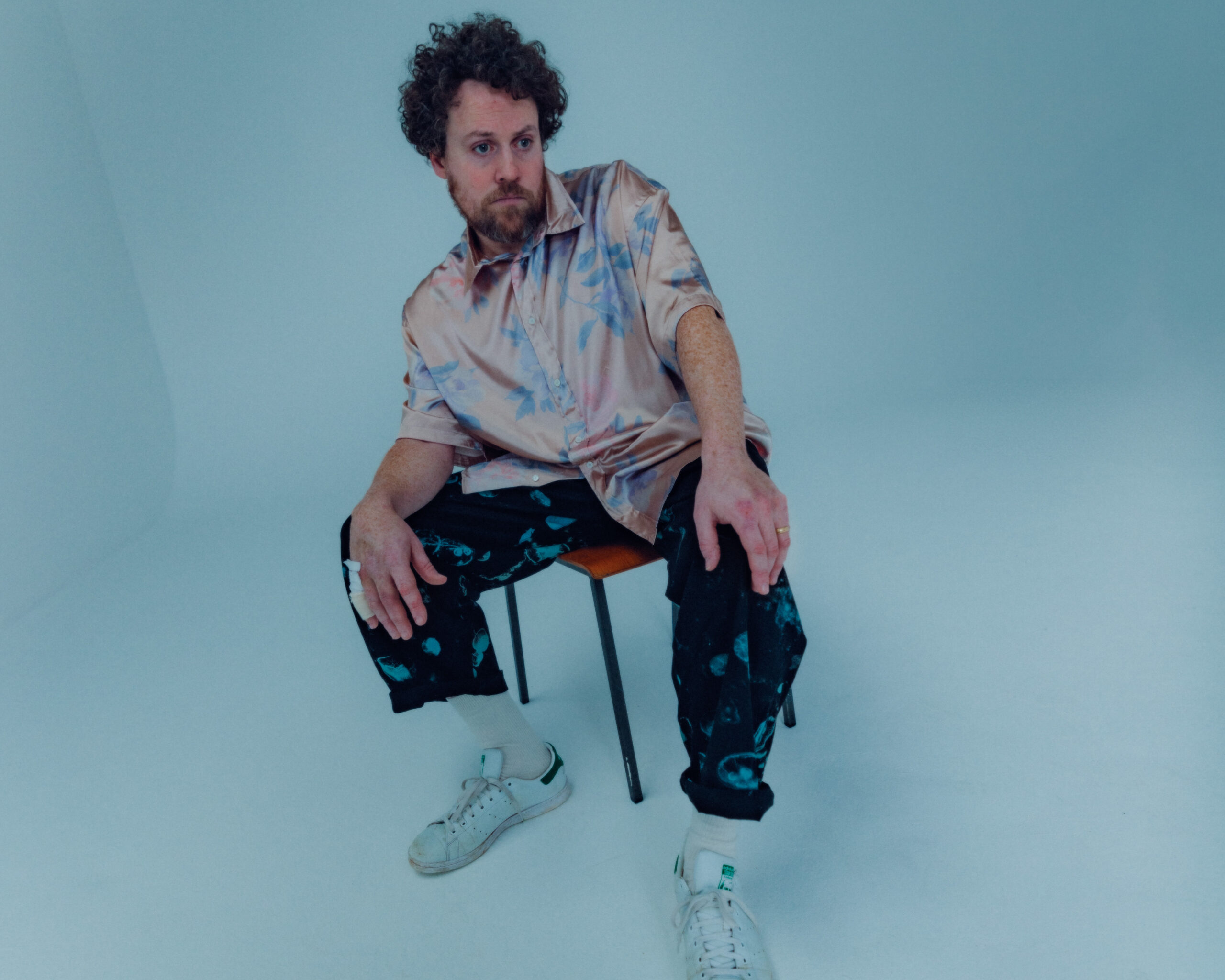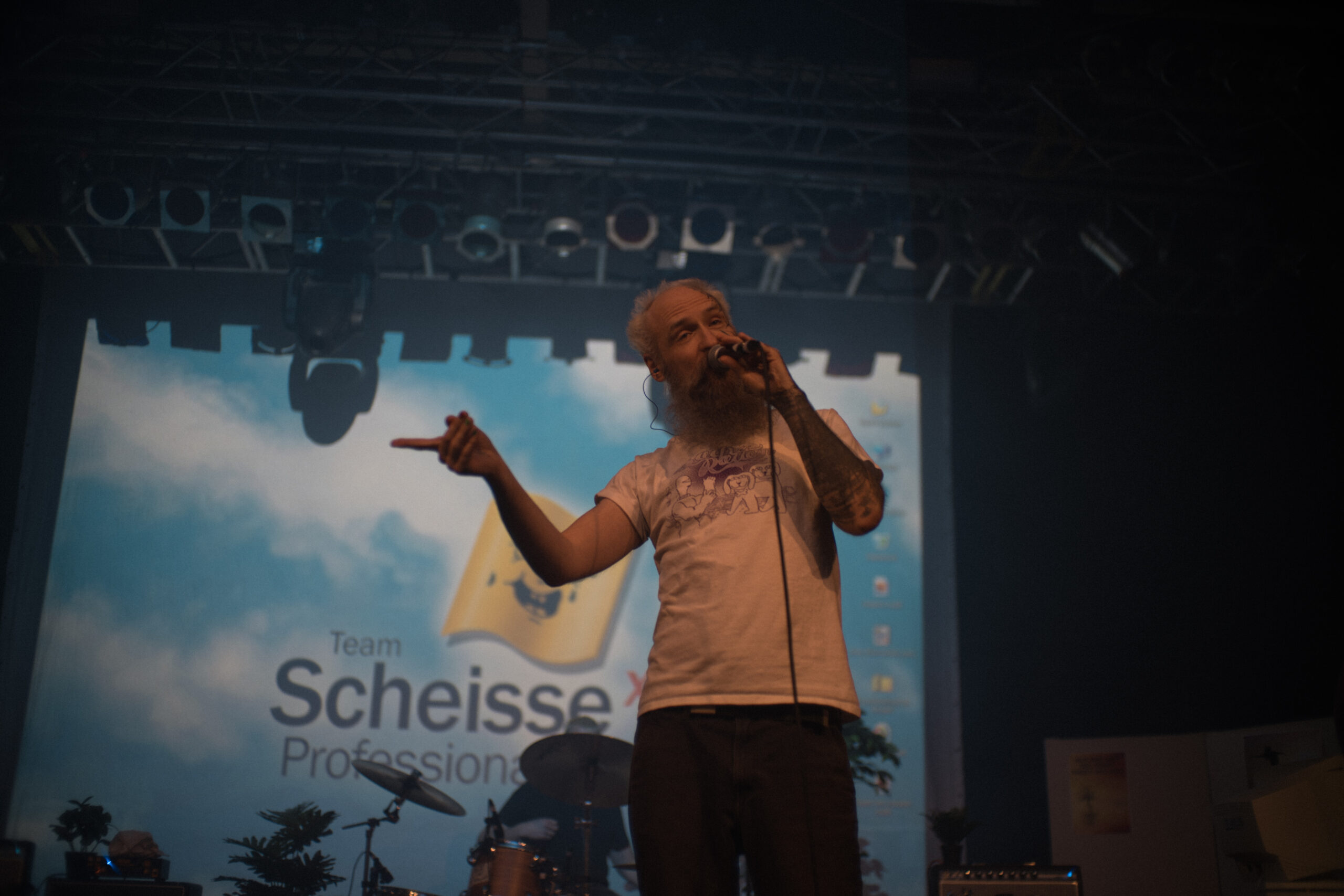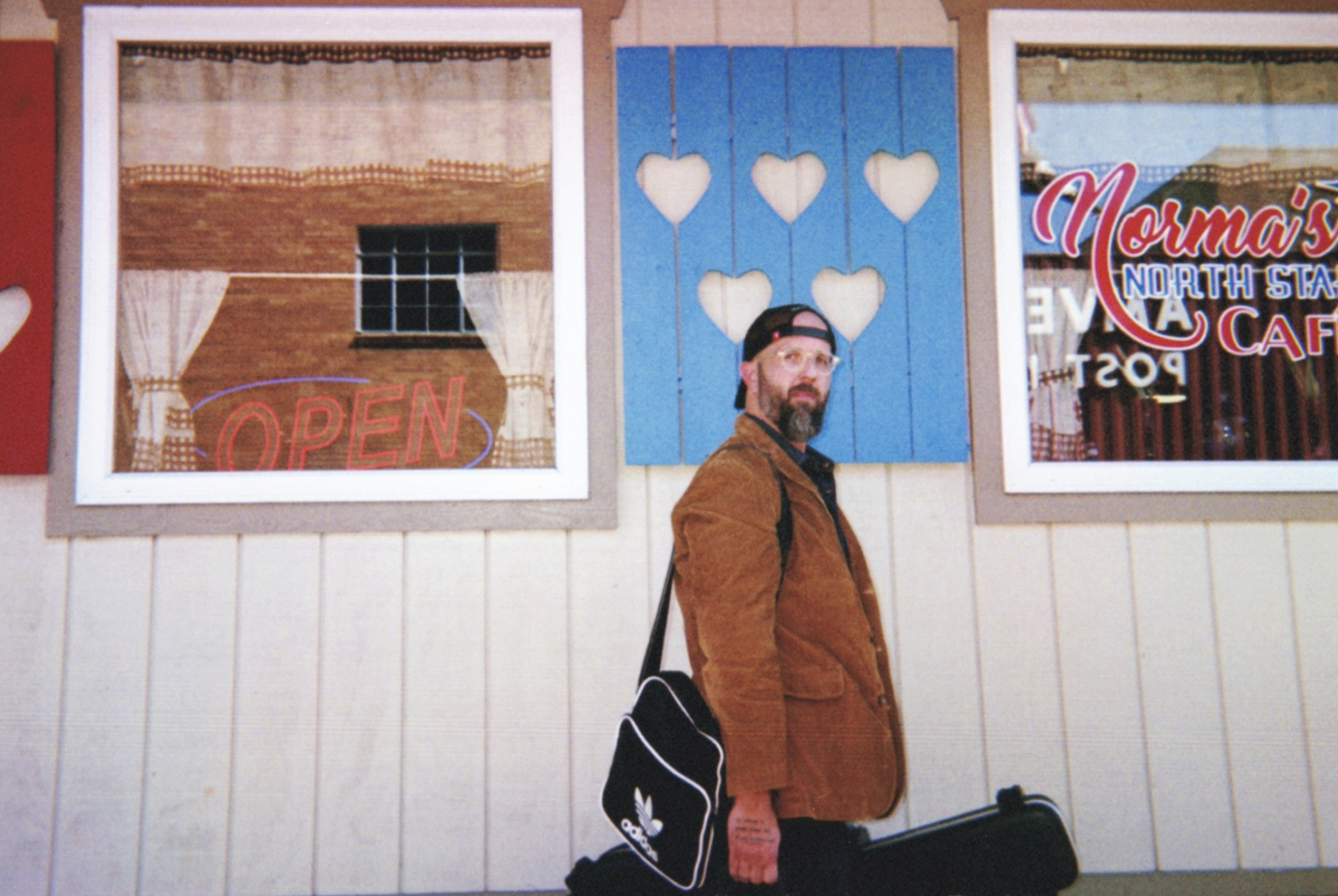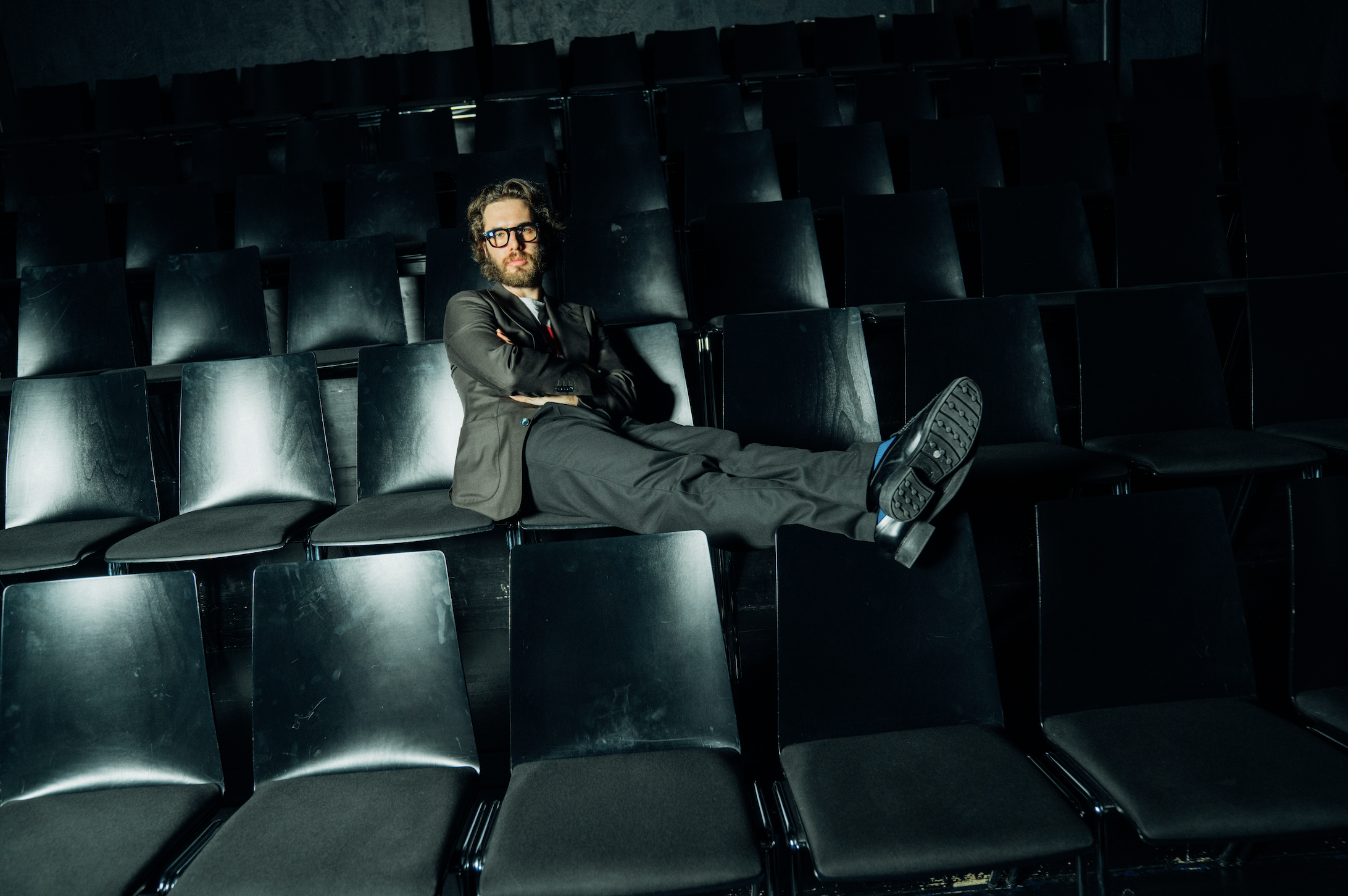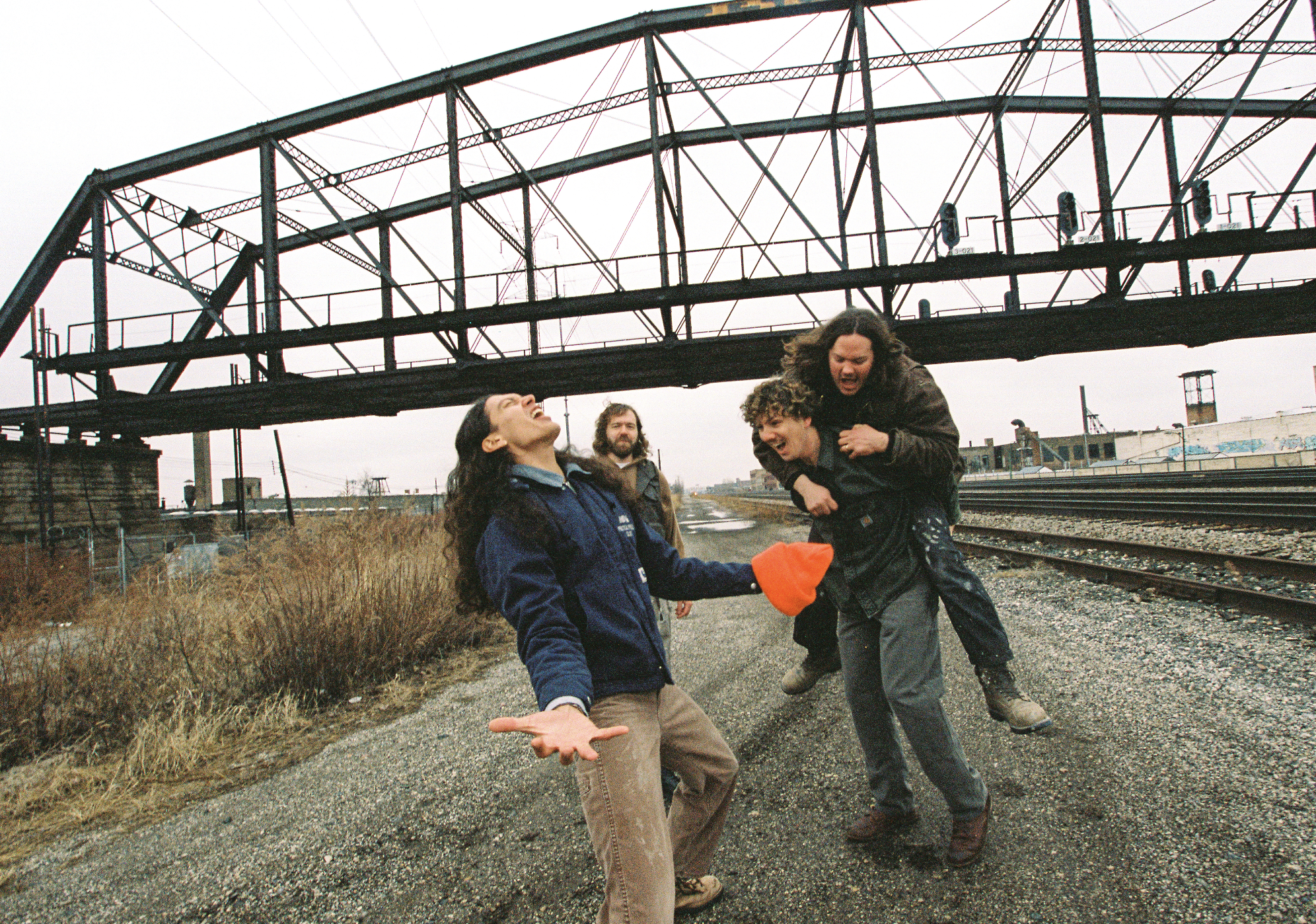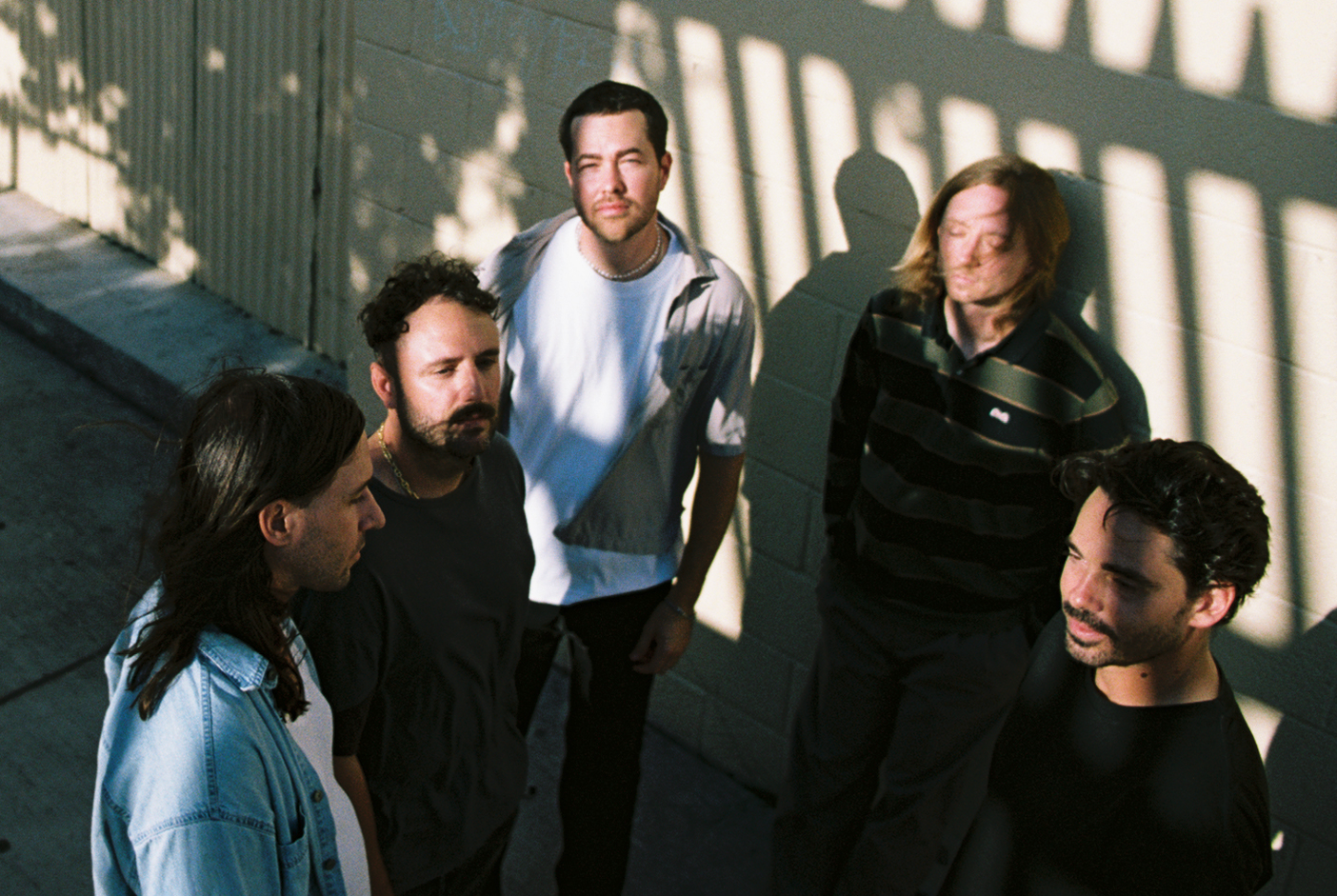 Foto-© Christiana Choi
Foto-© Christiana Choi
Die alternde Indie-Band ist eine ewig passende Projektionsfläche für das eigene Leben: In welche Richtung geht mein Leben? Wo ist die Zeit hin? Warum ist es nicht mehr so, wie es mal war? Aber eben auch die andere Seite: Man kann sich neu erfinden. Manche Dinge brauchen ihre Zeit. Und jede Lebensphase hat ihren ganz eigenen Charakter.
Local Natives sind genau so eine langsam älter werdende Indie-Band, deren Mitglieder auf die 40 zugehen. In den späten 2000ern wurden sie mit der Art Musik bekannt, die fünf begabte Männer in einer zugemüllten WG in Kalifornien in den späten 2000ern eben so machten. Etwas verkopfter, eigenwilliger, aber sonnendurchfluteter und ohrwurmtauglicher Indie-Rock. Sie waren herrlich dramatisch, spielten bewusst mit Dissonanzen und sprühten vor Energie.
Auf ihrem fünften Album Time Will Wait For No One ist diese Identität noch immer spürbar, doch sie hat viele Narben, Ecken und Kanten bekommen. Die Pandemie und verschiedene persönliche Schicksalsschläge haben den Freunden um Kelcey Ayer und Taylor Rice ein wenig den Wind aus den Segeln genommen, wie sie selber sagen. Und so klingen nur wenige Momente dieser neuen LP so leicht und sprudelnd wie auf dem fantastischen Vorgänger Violet Street von 2019. Die Welt ist eine andere, die Band ist eine andere. Doch das ist keinesfalls etwas Schlechtes. Wir sprachen mit den beiden über das neue Album via Zoom – das Interview könnt ihr ab sofort auch im Rahmen unseres Podcasts The Space Between the Notes hier hören!
I really love the new record, Time Will Wait for No One, and I’m excited to talk to you about it. You said that it was made during a time of metamorphosis for you. Can you start by talking a little bit about what was going on in your lives during the writing of this album? How does the title relate to the themes of the record, do you think?
Kelcey: I think it’s pretty relatable to what so many people were going through. But this is like our own personal take how it affected us. Me and Taylor and Ryan have been making music together for almost 20 years straight. When the pandemic hit, we had not been apart for longer than like a week for 14 years or something. I think when that happened, it just totally disrupted and destroyed any plans we had. We were supposed to go on tour with Foals. It was supposed to be a co-headline tour, our biggest tour up to that date, and that was canceled. We were hoping to start working on a new record and got delayed like a year because we didn’t know if it was safe to be together. How we write is we are very collaborative and we’re always together in a room and that didn’t seem possible. So there was a year and a half of just feeling untethered and totally separated from each other, which I think threw us all into our own kind of spirals. My wife and I were trying to have kids, and by the time we started getting into this record, we had just experienced our second miscarriage, this one being at 17 weeks, which the doctors called an anomaly because a lot of people experience miscarriages, about 20 to 30%, but that’s at about like seven weeks, eight weeks. So these two were like really devastating. I was just at an all time low and almost imploded the band and wasn’t sure if I could continue. We played this show at the Greek Theatre here in Los Angeles, and the show was sold out and it was like this ginormous highlight for our entire career. It was right in that moment that I was unsure what the future was going to be.
Taylor: Just as Kelsey was saying, I think probably everybody had this experience in their lives of you’re on like some sort of just normal life treadmill and the whole world shut down. I was the first one in the band to become a father and I had like a three month old son. So I was very new into fatherhood, thrust into isolation and being separate from my band mates and making music and and touring and all that. Basically, what ended up happening is we started getting together in our backyards and very slowly working on music. That started what would end up being a very long sort of healing process for us as individuals and as a band. I think like looking back now, what’s interesting is the way that these songs started being these little tiny like seeds of songs that we would play acoustic in the backyard. That’s kind of how we made the first Local Natives record because we all lived together at that time and that was 24/7. We would just wake up and be like, “Check this out” on acoustic guitar and on the piano in the living room. So it was sort of like a mirror image of how these songs started. Why we named the album Time Will Wait for No One is we started to realise everything and everybody is changing all the time. Anything that you think in your life that might be this like rock solid thing is just not. It changes and shifts. Through this record we were able to kind of re discover what is really special about our family bond and our musical bond as well.

I know that you guys have three songwriters. Ryan as well. How do you manage that between you and how did that change over the lockdown period? What are the differences in your methods of songwriting? Do you ever clash?
Kelcey: That’s an interesting question because there’s a lot of ways that the pandemic kind of forced us to try to change how we wrote music together. And that failed because it would be us trying to just record a demo and send it around Postal Service and turns out we aren’t good at that. I think it’s just because we’ve done something a certain way forever and it just immediately felt like this is just not working. So we ended up having to wait until we could get together outside in Taylor’s backyard to work on stuff just from the ground up. It kind of forced us to go back to how we used to do things since the very beginning, which I think we all ended up being really thankful for. It led to one of the most prolific times that we have ever had writing songs for a record. I think we’ve gotabout 20 to 25 songs. Not everything’s on this record, but there’s going to be even more new music coming like much sooner than than normal for us.
That’s really exciting. When you do get to the studio, almost every album has had a different producer. Gorilla Manor, you guys produced that with Raymond Richards. Since then, you’ve worked with Aaron Dessner of The National and Shawn Everett, who produced Kacey Musgraves and The War on Drugs. Now John Congleton, who’s worked with Angel Olsen and Death Cab for Cutie and St Vincent. What is your approach to choosing a producer, what is this restlessness with producers, and what did John bring that the other guys didn’t?
Taylor: I think the reason we have a new producer every time is because the experience of working with Local Natives destroys a producer and they’ll never work with us again [laughs]. Just kidding. We’re always interested in a new approach. With John, we had just done this collaboration with Sharon Van Etten and she had just made a record with John and it’s incredible. He’d been on our radar forever because he’s an incredible producer and has worked with so many artists that we love. Working with him was interesting. I will say, all producers are so different from each other, at least the ones we have worked with, are like not similar people. Their processes are not similar. They’re wildly different. John is a little bit to the point as a producer than Sean who you have to think about as like a mad scientist who’s insane and doing 10,000 ideas at once. John’s almost the opposite. It’s more about finding the thing and let’s just drive at that and if it doesn’t work, let’s just throw it out and start over. There’s something refining and kind of beautiful about that. It was an adjustment just because of the period we were coming out of to start working with him and adjusting to that. He also mixed a lot of the record and his mixing skills are incredible. And then one more thing I’ll just say about him that was unique to John is like without talking to us, we’ll create something together for like the vibe and the basics, but then he’ll throw in the Congleton atmosphere and won’t mention it, and then we’ll just be like, “What’s happening? What is that mist throughout this song going on right now?” And he’s kind of coy about it. That’s sick. We haven’t had that experience before.
Kelcey: The soup. He’d have like six guitar pedals running through a verb that was running through a thing. I remember specifically on ‘Paper Lanterns” that he had this little fog soup thing going on that I loved so much. I love when a producer can come in and it’s always a conversation and you’re into certain things, not into other things, but so many of our records have been touched in these beneficial ways by these producers. It’s funny that maybe from the outside it looks like no producer can please us and we have to keep moving from producer to producer. We already have five cooks in the kitchen every record we do. It’s just it’s all about timing. People’s schedules and we find the need to get new blood into the mix because we’re just excited to see how it will change the sound or how we’ll change something. We are the constants. We’re always there and we are opinionated, baby. I’m sure it can be a lot for a producer to work with a band like us. Every member has an equal voice. I feel like we’re kind of dinosaurs in that way.
You’ve written some some songs that I didn’t believe that Local Natives would ever write on this record. NYE stands out as an outlier on the album and something that you’ve never done before. The story goes that you were inspired to write it after you covered The Strokes’ Someday at Ryan’s Wedding. I have multiple questions about that. First of all, talk about NYE and whether that’s the direction the band might take further in the future. Secondly, what else is on that wedding playlist and what’s the greatest wedding song?
Taylor: So this happened a couple of times. Kelsey has a higher register voice than I do. So when we’re splitting up the wedding songs, I feel like often he gets a little bit screwed and then I get the awesome songs. I got to sing like The Strokes song. we did an Oasis song. Ryan is a huge Oasis fan. He always has been. So we played ‘Don’t Look Back in Anger’. We actually had Jonathan Wilson, who’s an incredible producer and guitar player and he did the solo for that song and just like ripped it up. Then Kelsey is gets the Bee Gees and Jackson 5 [laughs]. That high vocal.
Kelcey: Nick had me sing a Mary J. Blige song. These wedding asks are so, so insane. I did get to sing Valerie at Taylor’s wedding, and that was like one of my favourite things. I felt good. I felt really good about that one. They create a very fun environment of like whoever is getting married to be able to see their band members who they never see on stage – because we’re always together – do their thing. Ryan was watching us do this Strokes song and then was like, “I would love to see us do a faster song”. So ‘NYC’ was this kind of last minute pitch of a song that he demoed out himself, and it was one of the last ones we we worked on. I played bass on the Strokes song and I did have a lot of fun and I was like, I want to play bass. But yeah, he just kind of threw that out there and we got in the studio and, played it mostly live and it really worked out. We were all pleasantly surprised.
Taylor: I also think there’s a broader point. I think in the context of the album and what we’re going through, there was some ego death basically, and us kind of being freer and more willing to just sort of break out of the ruts and opinionated controlling of how we felt that everything needed to go. I do think there was a very conscious effort on our part to be freer in that way and expand. That song is a song that Kelcey in the past would say no to. Or at least that’s what Ryan thought and that’s what I thought as well. Because, Kelcey wants to be super sad, he wants to be super dark all the time, doesn’t want to have that much fun [laughs]. It was just a new moment and I do think the wedding did have something to do with it, but also I think there was the broader atmosphere of everybody being more open.
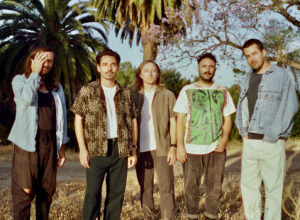
You’re going on tour in August, are you continuing to enjoy touring or is it harder personally now that you’re both parents?
Taylor: We haven’t toured much still, so we did like a month last year, this year so far we’ve just kind of had some festivals and little things like that. So this will be Kelcey’s first tour as a parent, and it’ll be my second. What I would say is Local Natives used to tour 10 months out of the year and then at another point 6 months. We’re not doing that anymore. Touring how we used to would be impossible, but some touring has felt great. A lot of people just hate touring in general. I think we’ve always kind of loved touring more than most. For me, the main driver of that is that hour and a half to 2 hours on stage where you’re in communion. It’s basically like a spiritual experience where you have a big group of people all together in one space experiencing something. So yeah, I’m excited to tour again. I think that will be a real adjustment period for for us.
Kelcey: I’ve never known having a kid and being on the road and Nick and Taylor both had kids last time. I just had a kid with my wife in February, which we’re so, so stoked on. And I actually I have this solo side project called Jaws of Love, and I just did a small West Coast tour. So I got to experience a small window into what it will be like, which I feel pretty grateful for. It’s good training to figure out how it’s going to be for this next big Local Natives run. And I’ve got Nick and Taylor to give me some advice. I’m always asking them what should I do? How do I do it? There’s a small child in my house. What do I do with it? What do I say to him? I don’t know what to say to him. I don’t know what to tell him. So we’re all starting to prioritise time off and prioritise our schedules. And in a way that I think is just good and healthy for growing up and becoming more of a responsible adult on the planet. For a long time we weren’t like that at all. I could definitely find you some times that that didn’t feel so great, not being able to plan anything ever. I think after the pandemic and starting to have kids it really helped in a lot of ways. We toured so much that I think I started kind of taking it for granted that we could go anywhere at any time and play in front of a bunch of people and have this experience. Being in the position of the whole world telling you you cannot do your job and what you’re kind of meant to be doing on this earth, you can’t do that right now, really made us all appreciate touring so much. That last tour in August, our bus set on fire.
Your bus set on fire?
Taylor: So there’s a good build up to it. Ryan, who’s not here to defend himself, he’s a very sensitive guy and he was like, “there’s something going on with this bus. I’m waking up, I’m feeling my eyes are swollen. When I wake up, I smell the fumes.” And everybody was like, “I think it’s just allergies, man”. Then cut to the bus literally caught on fire. I had actually flown home that day. I wasn’t there. There was apparently this construction crew across the street with, like, water and stuff. And they walk out and our tour manager sees in the wheel some brake fluid was kind of leaking and it sparked with these chains and the wheel well was on fire. And the tour manager runs on and she’s like everyone off the bus! And then this construction crew saw, who happened to be right next to it. They put it out.
Apart from music what’s the most fun thing?
Taylor: Pickleball. It’s the number one fastest growing sport in the U.S. It’s not really going off in Europe yet. Even if you’re like 80 years old, you can play pickleball. But a lot of tennis pros are playing it now and a lot of celebrities bought teams like LeBron James bought a pickleball team. And anyways, it’s super fun. It started out for the elderly, but it’s really blowing up and we play all the time.
Kelcey: Making jokes is mine. The band usually can get very upset with me because they’ll be talking about something serious and then I will say something really stupid. I made a comedy fiction podcast over the pandemic that was really fun to make, where I was like six characters doing different voices. I also co-hosted a night in L.A. called Human Soup, where it was like comedians and and musicians doing songs. I’m very, very into comedy, very interested in making people laugh.


